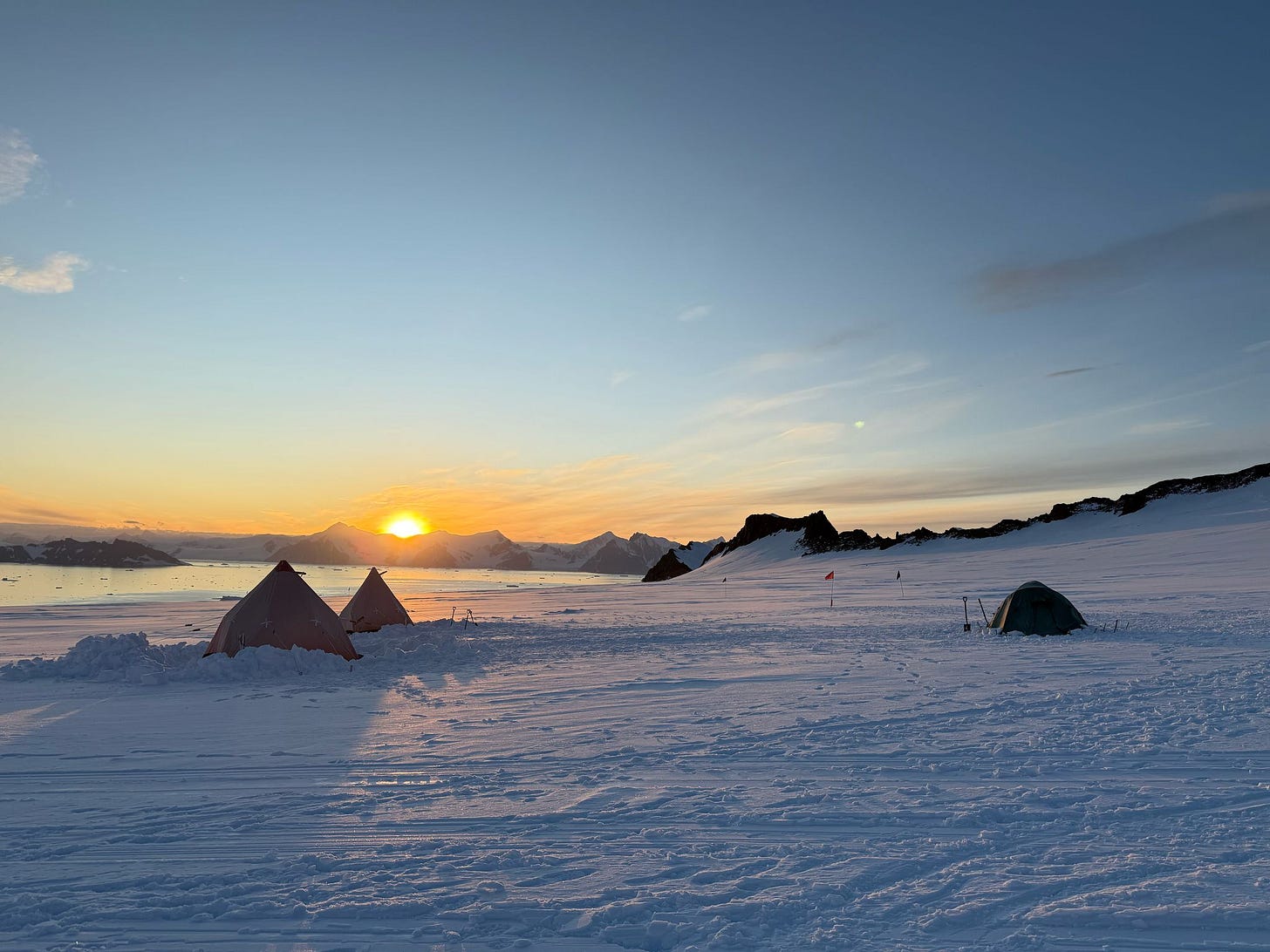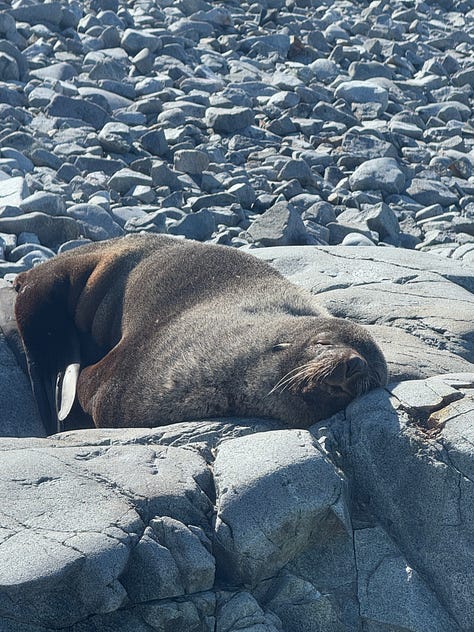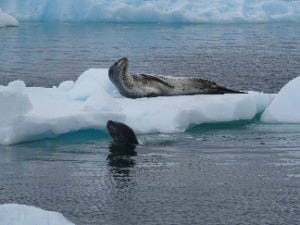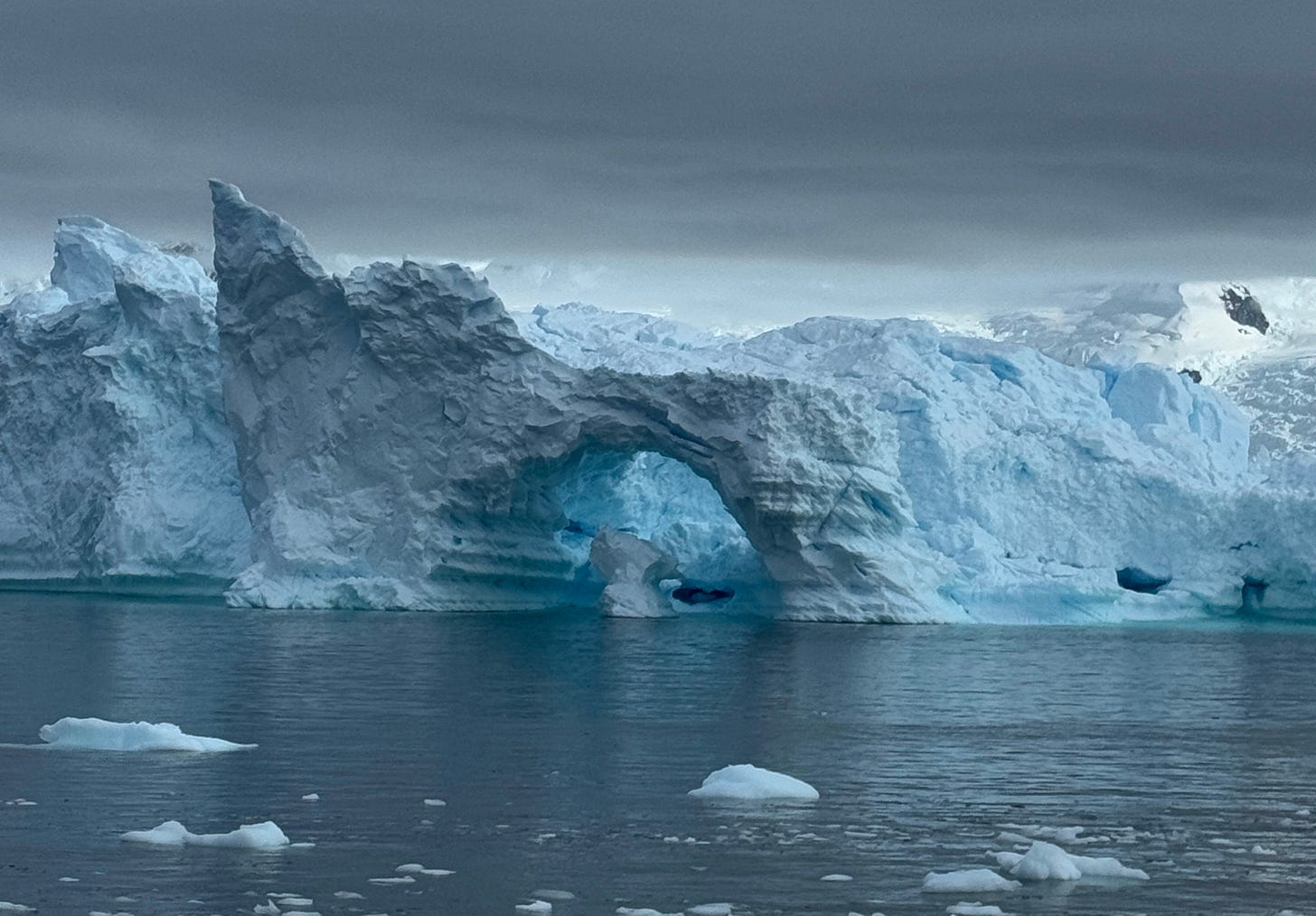It’s hard to place exactly why, but winter seems to be fast closing in on us here at Rothera. Only a few weeks ago, we had 24 hours of sunlight (in fact, the sun would barely get close to the horizon), which brought with it heat. At one of the field stations, there was a day where 7ºC temperatures were recorded—which feels a lot more like 25ºC in UK terms.
Now, sunsets are back and darkness is noticeable. Leaving New Bransfield House (our main social and dining space) to return to my room in the evenings is nearly always illuminated by LED. 22:06 was the end of civil twighlight yesterday, the de facto curfew for leaving the immediate station area. This will continually get earlier, to a point where there is only a small window of opportunity to go further afield during the day.

Ryder Bay is also increasingly filling with ice. We are seeing far more ‘brash’ ice (essentially debris from broken icebergs, glaciers and sea ice) as well as larger icebergs. The role of an approaching winter is likely to be confirmation bias—colder weather doesn’t actually produce more icebergs—but seasonal changes in wind patterns are actually a factor in bringing consistently more ice. In the coming months, transient sea ice will begin to form on the really cold, still nights.
And, station operations are tapering down in pace. Mid-February marked the end of the ‘field season’. Every field station was shut down, and deep-field parties brought back to base. The Twin Otter aircraft have left, many of which are making their way back to Canada in short hops. The Dash-7 is currently flying to and from Chile multiple times a week, rapidly exchanging outgoing staff for the final batches of newcomers. Nearly everyone on station now is either staying until one of the final ship calls (in May or June), or over winter (until at least October).
All of that is to say that the rhythms of life are slowly adjusting. We aren’t working at quite the same rate as in December and January, and many of us will work reduced ‘winter hours’ from next month. Boating is less predictable, with many dive sites regularly being ice-covered, but our weekly cycles are now completely settled.
Soon, snow will cover much of station again. We’ll exchange Gators for Skidoos to get around, and heavy vehicles will be fitted with snow chains. Mornings will begin by digging out fire exits, and evenings will be spent in total darkness. I’m looking forward to it.










